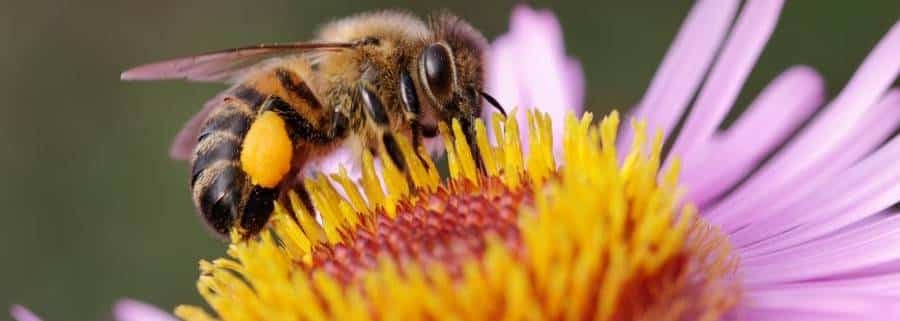
Bee propolis is a resin-like substance prepared by bees from the poplar and cone-bearing trees’ buds. It is nearly unavailable in its pure form. We can typically get the bee propolis from beehives. It consists of bee products and bees use this material to prepare their hives. People use this resin-like substance for cold sores, diabetes, swelling (inflammations), and sores inside the mouth (oral mucositis).
They also use it for burns, minor cuts, genital herpes, and other health conditions, but there is still little scientific evidence available to support these uses. They are perfect for use because this material can fight against viruses, bacteria, and fungi. It also has an anti-inflammatory effect and helps skin heal.
What is Bee Propolis?
Other than honey bees also prepare a compound known as bee propolis from the sap on needle-leaved evergreen trees. When they mix the sap with their discharge and beeswaxes, they produce a sticky, greenish product used as a coating to prepare their hives. This is the real bee propolis.
Hundreds of years ago, people used this resin-like material for its medicinal nature. Greek people also utilized it as an abscess cure. Assyrians applied this material on the burnt region and tumors to combat infection because it helped the healing process.
Its composition differs depending on the area of the bees where they are found and what trees and flowers they have access to. For instance, propolis from Europe would not have the same chemical composition as bee propolis from Brazil. It makes it tough for scientists to come to a general conclusion about its health advantages. But overall it is quite beneficial from a health perspective.
What is in the Bee Propolis
There are above 250 to 300 compounds in bee propolis. The majority of them are polyphenol types. Polyphenol is an antioxidant that fights disease and any damage in your body.
Particularly, propolis comprises the polyphenols known as flavonoids. They are formed in plants as a form of protection. Flavonoids are usually available in foods thought to have antioxidant properties, like:
- red wine
- fruits
- green tea
- vegetables
Benefits of Bee Propolis
1) Wound healing
One 2016 study recommends that bee propolis helps in wound healing. Research on humans with diabetes indicated that bee propolis helped the skin grow new cells to repair itself.
As individuals with diabetes experience slow wound healing, it recommends that propolis might help your skin heal more instantly. As it even kills some kinds of bacteria, it also helps prevent infection.
2) Oral health
Propolis prevents the production of calcium phosphate that is the key component of dental plaque. This resin-like substance is also antibacterial which is why it is a beneficial ingredient in dental care products.
According to research, propolis significantly minimized the number of bacteria in the saliva of people with periodontitis.
3) Inflammation
The antioxidants present in it work to minimize inflammation, like the inflammation that arthritis causes. It also has an anti-inflammatory agent present in them that helps people with arthritis. propolis regulates inflammatory substances in your body, such as prostaglandins.
4) Herpes
A new scientific review recommends that propolis works as a substitute treatment for genital or oral herpes. Herpes is because of the herpes simplex virus (HSV). HSV-1 usually leads to oral herpes that can result in cold sores. This disease is sexually transmitted, and it leads to an infection that results in painful blisters on your genitals.
Comparing the honey and propolis properties and their effects, we come to know that it is widely used as a treatment for herpes.
How to use propolis
People may use bee propolis in different ways, including:
i) diluted in water as a mouthwash
ii) as an oral supplement
iii) Topically on the skin
Before using bee propolis, it is perfect or ideal to get the advice of a doctor or medical health provider to check that it will be safe for a person to use. Then, the individual must patch test some propolis to ensure that they don’t have an allergy to it.
For use on the skin, apply pure propolis or a skin product that contains propolis as an active ingredient.
For usage in the mouth, dilute a little quantity of propolis in water. Watch the mouth or gargle the mixture for some time before spitting it out.
Special Precautions & Warnings:
- There is no valid information about the safety of consuming it if you are pregnant or breastfeeding. So do not take risks and avoid using them.
- Some professionals believe particular chemicals in the bee propolis can make asthma worse. Thus do not consume propolis if you have asthma or you are allergic to its composition.
- Bee propolis may slow blood clotting. Consuming propolis could maximize the risk of bleeding in people with bleeding issues.
- Avoid using propolis if you are allergic to bee products including conifers, honey poplars, Peru balsam, and salicylates.
- A particular chemical in it may slow blood clotting. Consuming propolis could maximize the risk of bleeding during and after surgery. Avoid taking its supplements around two to three weeks before surgery.
Summary
Bee propolis is a gummy or resin-like material obtained by bees from the tree’s buds. Different studies recommend that it comprises lots of properties that might benefit our health. People use it for different purposes like some apply it to the skin or use it as a mouthwash. It is also used as a supplement for various health concerns like diabetes, flu, and infections.
But still, we need lots of evidence to prove its remarkable uses or recommend that bee propolis is an efficient treatment for a particular condition in our bodies. So, before going to use it you need to consult your doctor first for safety reasons.
